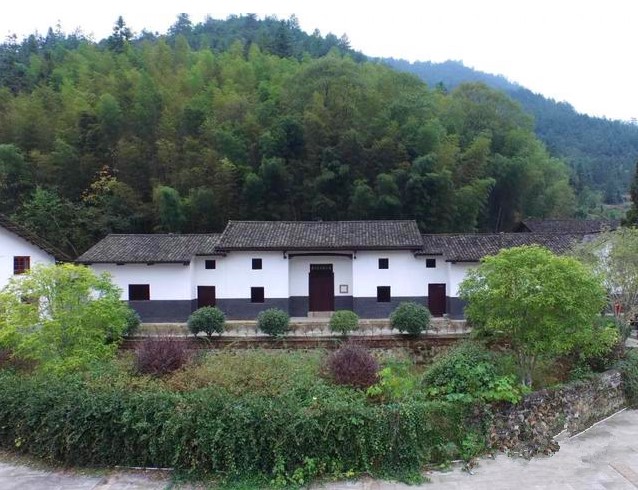"Deng Liqun's Former Residence" Listed in Cultural Relics Protection Units in Hunan Province
The10th batch of provincial cultural relics protection units in Hunan Province has been listed, totaling 269 in the whole province, of which 20 units were selected in Chenzhou City, and the "Deng Liqun's Former Residence" in Guidong County has been formally listed in the cultural relics protection units of Hunan Province through application, data screening, field review and other procedures.

Brief Introduction to Deng Liqun's Former Residence:
Deng Liqun's Former Residence, located in the Shankou Group of Liuyuan Village, Zhaiqian Township, was built during the Qianlong Years in Qing Dynasty (about 27 years of Qianlong, 1762 AD). It has brick and wood structure, green brick walls and small green tiles, an area of more than 900 square meters and a building area of 826.8 square meters. It faces the southeast, with three halls and three courtyards, and 29 houses, which have typical characteristics of Jiangnan folk houses.
The former residence hall has algae well, partition fan, divided into main hall, study, bedroom, kitchen and so on. There are two rare indoor plaques in the study, on which the words "Shude" and "Yunting" are written respectively, with profound implications. The plaque is made of green brick. It is the merit plaque bestowed by the imperial court after Deng Liqun's grandfather Deng Gancai and his uncle Deng Lincai entered the bachelor's exam. There are fish ponds in front of the house, small gardens in the courtyard, and bamboo forests on the back of the house , and the overall courtyard environment is elegant and comfortable.
In 2012, it was announced as a municipal cultural relics protection unit by the Chenzhou Municipal People's Government. In November 2015, restored exhibitions and exhibitions were added to the former residence. The restored exhibitions truly reproduced Deng Liqun's childhood living environment by enriching a large number of cultural relics and physical decorations. The exhibitions show Comrade Deng Liqun's great contribution to the Party and the people, his noble moral sentiment and extraordinary life experience in three parts: revolutionary career, theoretical contribution and personality style. Deng Liqun's Former Residence is not only a rare human landscape, but also a memorable patriotic education base.




